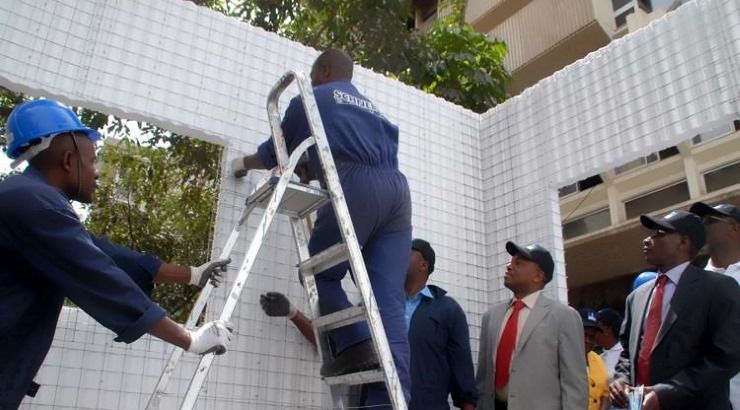Infrastructure
Global Giants Eye Kenya’s Low Cost Housing Billions
The government is committed to delivering 500,000 low cost homes by 2022.

Global construction giants vying to help Kenya build a million low-cost homes have put their cards on the table, bidding for the job of building 8,200 homes in Mavoko, Machakos County – which will serve as a prototype for the ambitious scheme.
The yet-to-be-disclosed firms, mostly from China, are part of a group of 60 companies that responded to Kenya’s call for expression of interest in October and whose bids are currently being scrutinised by the State Department of Housing and Urban Development.
According to the government’s plan, successful bidders will use modern technologies to build 8,200 houses on a 55-acre parcel of State land in Mavoko under the Engineering Procurement Contract (EPC) delivery model where a contactor funds a project and is compensated upon completion of the venture.
Housing and Urban Development Secretary James Macharia said Wednesday that the government is committed to delivering 500,000 homes by 2022 – mainly within urban and peri-urban centres at a maximum price of Sh3 million.
“We shall soon announce winners of Kenya’s first Public-Private Partnership (PPP) housing project which will help us establish a mass housing production model to be rolled out on a national scale,” he said.
Mr Macharia said the government will only consider firms with a record of implementing big housing projects within the shortest time possible without compromising on quality.
RELATED: Inside Kenya’s Sh1 Trillion Plan to Deliver Low-Cost Homes
The State, which will provide parcels of land to developers who will then prepare the site and architectural plans for the identified projects, is fronting the use of precast wall panels and pillars as a means to expedite the project.
The National Building Inspectorate Secretary Moses Nyakiongora had earlier said that a total of Sh1 trillion would be spent on the construction of over a million low-cost homes in five years to help ease the housing deficit that currently stands at about 1.85 million units.
“Developers should consider quality, cost and time when executing the project that will comprise housing units, social and security facilities with associated physical infrastructure such as drainage, roads, water and energy connections,” he said.
Kenya has recently emphasised on provision of affordable housing as a means to assist citizens who have been priced out of the property market.














